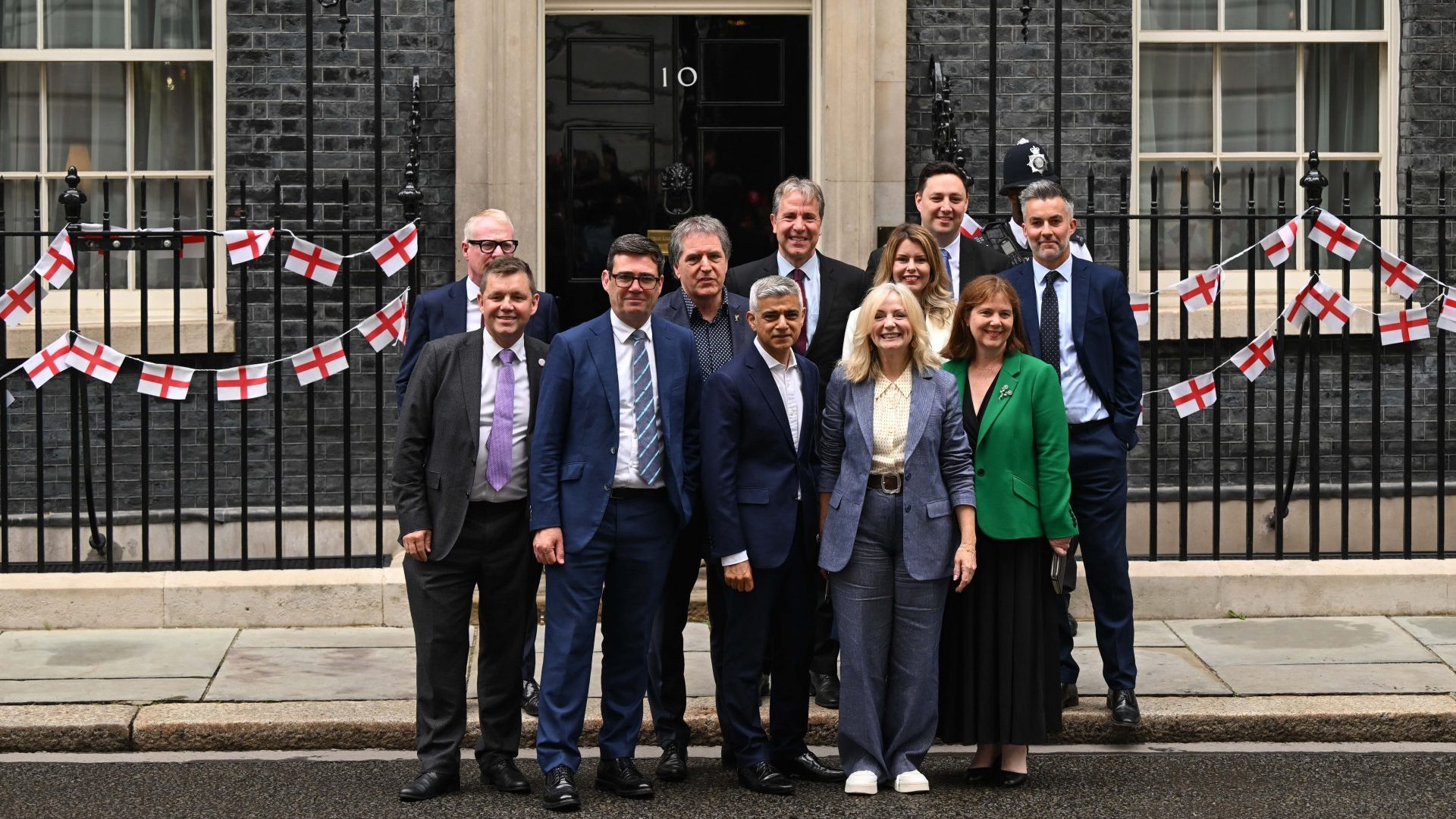There’s panic in Conservative circles, and not just over their electoral wipeout. Numerous self-styled Tory constitutionalists believe Keir Starmer has launched a full-frontal attack on democracy. “Our new left wing radical prime minister is wasting no time when it comes to tearing up the British constitution – potentially irreversibly,” writes Michael Curzon at the European Conservative magazine.
Peter Hitchens warns in the Mail that Starmer “wants to steal power from our ancient, sovereign parliament and hand it to lawyers, the devolved mini-states in Scotland and Wales, and … judges”. Reactionary historian David Starkey claims Labour will “eradicate our traditions of parliamentary democracy”.
What has provoked this fit of apoplexy? Starmer’s decision, on day five of his premiership, to meet the heads of government of Wales and Scotland, together with the elected mayors of England, and to regularise such meetings through a Council for Nations and Regions. Though Starmer has said he does not want to “overly formalise” the council, the Tory right have convinced themselves it is a threat to parliamentary sovereignty. They cite Gordon Brown’s 2022 report A New Britain, which called for such a council to be “based in statute, with an independent supporting secretariat”.
So what’s going on? Labour’s devolution agenda is real and well thought-through. It is premised on the idea that, in a period of strategic change, where the whole economic model has to be shaped around growth, the climate transition and economic security, it is better to devolve power downwards to the communities that will need to execute and own these priorities.
That does not mean handing the Nimby lobby the power to block pylons and new towns. But it does mean handing, for example, the mayors and the first ministers of Wales and Scotland a voice in the design of energy and industrial strategy.
But the Tory right have noticed that this challenges one of the key mechanisms of governance in the neoliberal economic system: the elective dictatorship of the centre.
If you think of the worst excesses of corruption, profiteering and nest-feathering that have happened under the Tories – from the Lex Greensill lobbying scandal, to Matt Hancock doling out a Covid contract to his pub landlord, to the alleged exploits of Michelle Mone – they would be impossible without a system of untrammelled power.
This has nothing to do with “parliamentary sovereignty”. It consists of the concentration of power in Whitehall, behind a complete absence of transparency and accountability, and the reallocation of such power to the private sector via “non-executive directorships” and privatised procurement processes.
Neoliberalism is the coercive introduction of market mechanisms into all aspects of everyday life, to the benefit of hedge funds, oligarchs and tech giants: that’s why you need a strong and unaccountable state to drive it home. And that’s what the Tories have created.
This is why I am heartened by Starmer’s first steps. He could have toured hospitals or schools. Instead, he sat round the table with regional mayors. He could have stuck with Emily Thornberry as attorney general, but instead appointed a lawyer’s lawyer, Richard Hermer, to signal the primacy of law over politics.
He could have left former Camden Council leader Georgia Gould to serve her first couple of years as an MP on the back benches: instead, he has made her a minister in the Cabinet Office, reportedly with a remit to enact a “community power” agenda in Whitehall similar to the one she has pursued in Camden.
And as for the Council of Nations and Regions, no matter how informal, it does create a potential extra pillar of government, alongside the “mission control boards” Starmer is set to bring in to execute Labour’s plans.
This has nothing to do with undermining parliamentary sovereignty. Indeed, why would Starmer need to do that when he commands a majority of 172?
This concentration on devolution, governance and the rule of law does, however, herald some of the wider democratic changes Starmer is likely to make. Labour’s manifesto was clear: there will be votes at 16, an expansion of forms of ID usable at the polling station, and it promises to “improve voter registration”, which could mean automatic voter enrolment.
A YouGov polling breakdown shows that Labour has a massive lead among voters under the age of 45. And if you add in the Greens, Liberal Democrats and nationalist parties, the total progressive vote is always a majority for the working-age population.
Yet the first polling estimates show that less than half of young voters actually voted. Combine half-decent delivery in office with moves to facilitate voting and make votes in local and mayoral elections count, and Starmer can cement a permanent progressive majority into politics – a majority that will grow as the retired, home-owning vote dies off.
And that’s what the Tory constitutional buffs are really scared of. Freemarket economics got an easy ride in Britain because it used opacity, centralisation, voter suppression and a right wing media stranglehold to suppress resistance and dissent.
By contrast, the three big achievements of the Blair years (alongside the failures) were measures that counter-acted the primacy of the market, and look irrevocable: the minimum wage, the Equalities Act and the Climate Change Act.
If Starmer can achieve a rapid reform of the House of Lords, and set the Council of Nations and Regions on a statutory footing, then alongside reforms that make it easier to vote, we’ll see a power shift from corporations to people.
The people, in short, will get the right to see what’s being done with the power they have handed to the executive, and to say no to the relentless ripoffs that characterise their relationship to corporate power.




